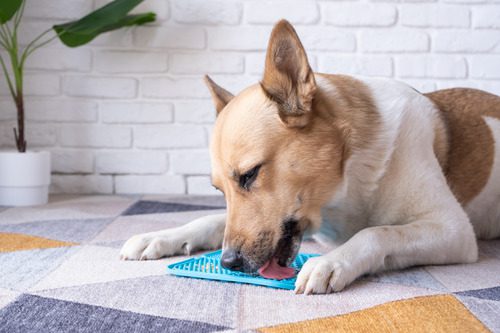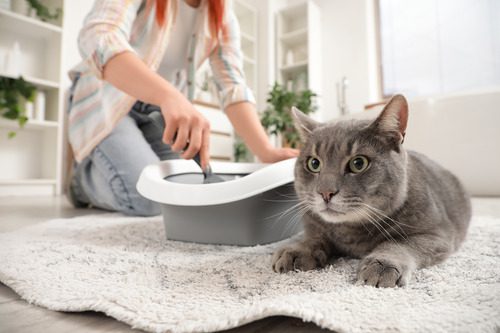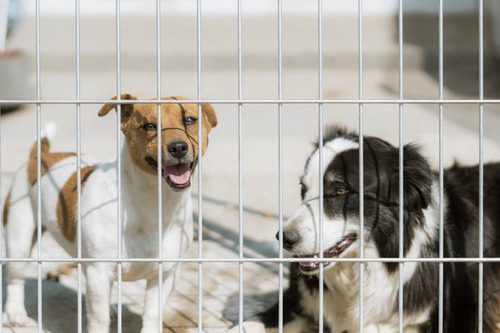Is It Safe for Dogs to Eat Peanut Butter?
It’s no secret that peanut butter is a favorite treat among many dogs. The moment a jar is opened, tails start wagging and ears perk up. But while this creamy snack may be a household staple, pet owners often ask: Can dogs eat peanut butter? It’s a valid question and one that deserves a closer look. While peanut butter can be safe in moderation, not all types are made equal, and some can pose serious risks. In this article, we’ll take a closer look at what makes peanut butter safe or unsafe for dogs, how to identify potential hazards, and how this treat can fit into your dog’s routine. If peanut butter is part of your dog’s snack time, you’ll want to read through every part of this blog before offering up another spoonful.

What Makes Peanut Butter Appealing to Dogs?
Peanut butter is rich in flavor, protein, and fat, which is why many dogs go crazy for it. Its sticky, savory texture makes it an ideal reward or distraction during training, enrichment activities, or nail trims. Dogs are naturally drawn to the strong aroma, and the reward factor makes it a reliable tool for reinforcing positive behavior.
However, the appeal of peanut butter doesn’t automatically mean it’s safe for regular consumption. While the high-fat content may satisfy your dog’s taste buds, it’s important to understand how this affects their digestion and overall health. Some dogs may tolerate it well, while others can experience stomach upset or weight gain if it’s not portioned carefully. Peanut butter can also mask medications, making it easier for pet owners to administer pills. This added benefit makes it even more popular, but again, it’s essential to use the right kind and offer it in moderation.
Can Dogs Eat Peanut Butter Safely?
The short answer: Yes, dogs can eat peanut butter, but only certain types, and only in small amounts. Natural peanut butter with no added sugar, salt, or artificial ingredients is generally safe for dogs. But even safe options need to be given sparingly due to their calorie and fat content. Many peanut butter products contain added ingredients that may not be suitable for dogs. Some of these additions are harmless to humans but can be dangerous for pets. Before offering a taste, take a closer look at the label.
Ingredients to Watch For
One of the most serious concerns is xylitol, a sugar substitute that is toxic to dogs. Even a small amount can lead to a rapid insulin release, resulting in dangerously low blood sugar (hypoglycemia), seizures, liver failure, or worse. If a product contains xylitol, it should never be given to your dog under any circumstances.
Other ingredients like added salt, refined sugar, or hydrogenated oils may not be toxic, but they can contribute to long-term health problems. Excess sodium can affect blood pressure, while added sugars may lead to obesity or pancreatitis in some dogs. To play it safe, always choose peanut butter with one simple ingredient: peanuts.
How Much Peanut Butter Can Dogs Eat?
Even the safest peanut butter should be offered in moderation. Because of its fat and calorie content, too much can lead to weight gain, digestive upset, or even pancreatitis (a serious condition that requires medical care).
General Guidelines by Size
Smaller dogs should receive no more than half a teaspoon per serving, while medium and large dogs may be able to handle one to two teaspoons. This can vary based on your dog’s activity level, age, and health history. Use peanut butter as an occasional treat, not a daily indulgence.
Creative Ways to Serve Peanut Butter
- Smear it inside a food puzzle or treat toy
- Use it as a training reward
- Hide pills inside a small peanut butter ball
- Freeze a small amount inside a rubber toy for longer entertainment
These methods not only add fun and stimulation to your dog’s routine but also help you control how much peanut butter they’re getting in one sitting.
When Peanut Butter Becomes a Problem
Just because peanut butter is generally safe doesn’t mean every dog will tolerate it. Some dogs may be more sensitive to rich, fatty foods and may experience vomiting, diarrhea, or other digestive issues shortly after eating it. Additionally, dogs with known health conditions such as diabetes, pancreatitis, or food allergies should not have peanut butter unless their veterinarian gives the green light. Even then, the amount and frequency need to be carefully managed. If your dog ever shows signs of distress after eating peanut butter such as drooling, shaking, weakness, or vomiting, contact your veterinarian right away.
Reading the Label: Choosing the Right Peanut Butter
Not all peanut butter is created equally. When shopping for a jar that’s safe for dogs, your best bet is one with minimal ingredients and no sweeteners or artificial preservatives.
What to Look For
- No xylitol
- No added salt or sugar
- No palm oil or hydrogenated fats
- Ingredients list: peanuts (and nothing else, if possible)
Natural and organic peanut butter brands are typically safer because they tend to avoid chemical additives. However, you should still check the label each time, even if you’ve bought the brand before as formulas can change without warning.
Healthier Alternatives to Peanut Butter
If you’re unsure about using peanut butter or want to explore different options, there are several alternatives that offer the same reward factor without the same concerns.
Dog-Safe Peanut Butter Alternatives
- Pureed pumpkin (unsweetened, canned)
- Plain Greek yogurt (in small amounts)
- Unsweetened applesauce
- Cottage cheese (low-fat, no added salt)
- Mashed sweet potato
These foods can also be used for stuffing treat toys or disguising medication. Just like peanut butter, these should be introduced gradually and served in moderation.
Dogs That Should Avoid Peanut Butter
While most healthy adult dogs can enjoy peanut butter from time to time, some dogs may not be good candidates for this snack at all.
Health Conditions and Risk Factors
- Pancreatitis: High-fat foods can trigger painful flare-ups
- Obesity: Peanut butter is calorie-dense and can slow weight-loss progress
- Food allergies: Some dogs are allergic to peanuts or related proteins
- Diabetes: Even natural peanut butter can affect blood sugar levels
If your dog falls into one of these categories, it’s best to talk to your veterinarian before offering peanut butter or similar treats.
Treating Your Dog the Smart Way
Peanut butter can be a fun, enriching treat for dogs when used the right way. The key is to choose a dog-safe product, portion it appropriately, and keep an eye on how your dog responds. This snack doesn’t need to be off the table, but it does need to be offered with care. If you have questions about which foods are safe for your dog or want to make peanut butter a part of your pet’s enrichment routine, our team is here to help. Call one of our Best Friends Veterinary Hospital locations or book an appointment online today.
Recent Posts
About Best Friends Veterinary Hospital
Our veterinarians and staff warmly welcome dogs, cats, and a variety of exotic pets as patients here at our animal hospital, and we offer a host of services to give your unique family member a lifetime of excellent care.




